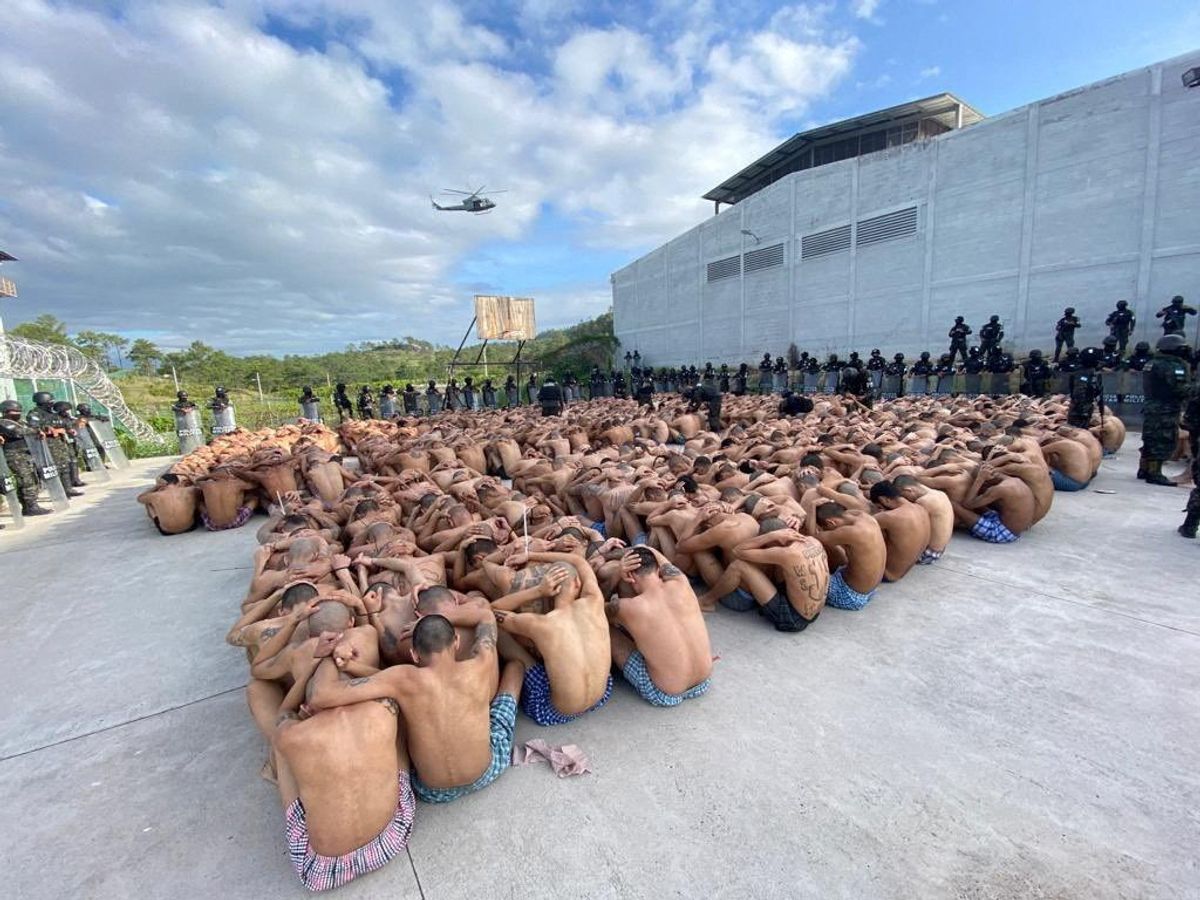On Monday, authorities in Honduras responded to a gang-related fire that killed 46 inmates at a women's prison by putting the military police in charge of all jails, emptying cell blocks, and forcing cons to sit in rows nestled against each other, with their hands tied, heads bowed, and male inmates shirtless. Sound familiar?
Yep, that's exactly how the prison system is run in neighboring El Salvador since strongman President Nayib Bukele imposed a draconian state of emergency to fight gangs. And his people love him for it.
Bukele is the world's most popular democratically elected leader, with an approval rating consistently hovering around 90%. Perhaps the main reason is his mano dura or "tough hand" approach toward gang violence, which has made crime rates nosedive at the expense of the rule of law and human rights.
Understandably, Bukele's sky-high popularity makes it tempting for leaders of other Central and South American nations — many of which face the same problem with gangs — to follow his lead. But it's no magic solution: In Ecuador, outgoing President Guillermo Lasso is losing his war on gangs despite imposing an emergency rule similar to El Salvador’s under Bukele.
What's more, such authoritarian vibes seem off-brand for Honduran President Xiomara Castro, an unabashed left-winger who won the top job in 2021 on a promise of restoring faith in democracy. Desperate times …


















